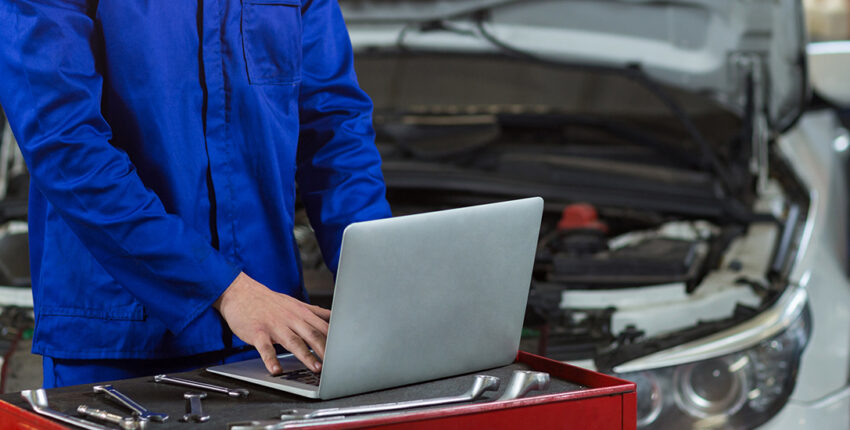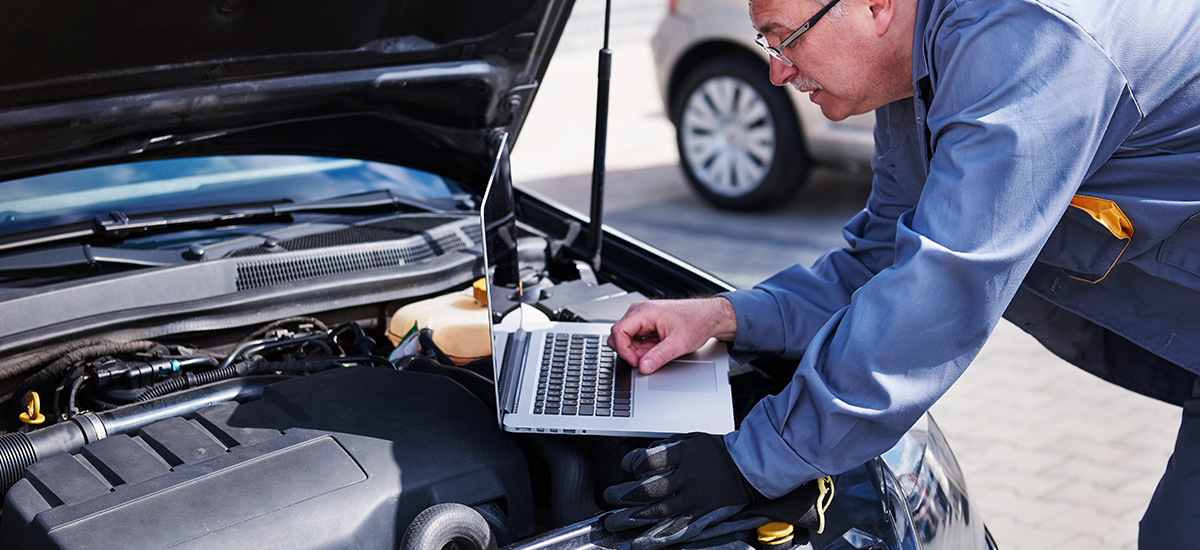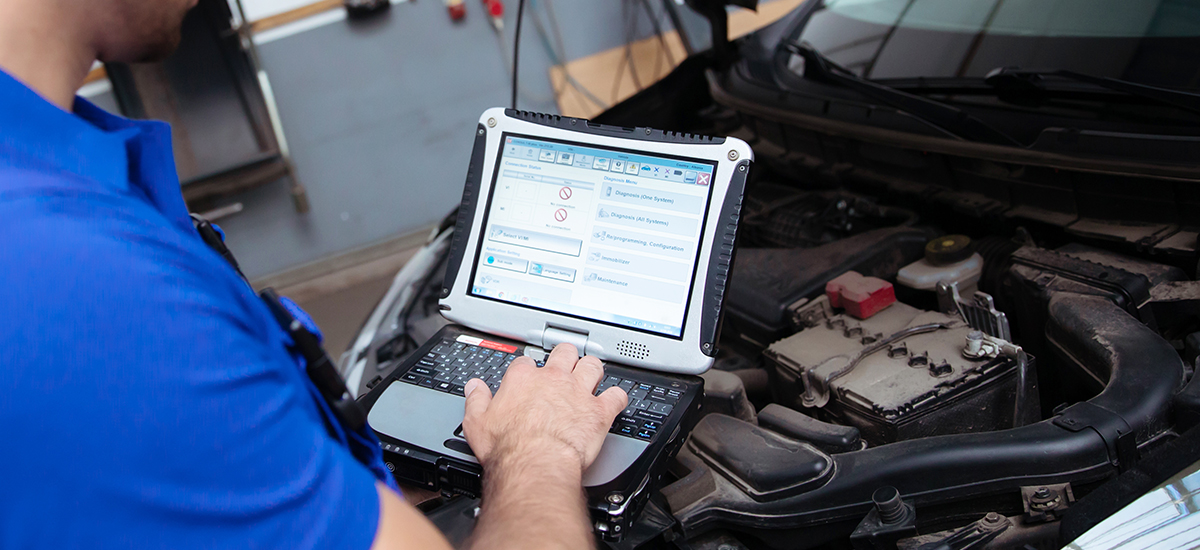The check engine light is one of the most misunderstood—and often ignored—signals your vehicle can give you. It’s easy to brush off that little glowing icon on the dashboard, especially if your car seems to be running fine. But behind that light is a complex system of engine diagnostics working hard to alert you to potential problems before they become serious—and expensive.
At Crossroads Auto Repair of Jacksonville, we’ve seen it all. For more than 22 years, our expert technicians have helped local drivers decode the mystery of the check engine light, using industry-leading diagnostic tools and old-school know-how to get vehicles back to their best. If you’ve ever wondered what that light really means—or what you should do about it—this blog will walk you through everything you need to know.
What Is Engine Diagnostics?
Modern vehicles are equipped with an onboard computer system, called an Engine Control Unit (ECU), that constantly monitors and adjusts how your engine and other systems perform. It collects data from a network of sensors throughout the vehicle—monitoring everything from engine temperature and air-fuel mixture to exhaust emissions and more.
When something goes outside the normal operating range, the ECU responds by storing a Diagnostic Trouble Code (DTC) and often illuminating the check engine light on your dashboard. These codes are the starting point of what’s known as engine diagnostics—the process of reading, interpreting, and addressing those codes to understand what’s wrong with your vehicle.
In short: engine diagnostics is your car’s way of speaking up when it needs help.
Why the Check Engine Light Comes On
The check engine light (CEL), sometimes labeled “Service Engine Soon,” is a warning indicator—not a diagnosis. It can mean anything from a loose gas cap to a failing catalytic converter. Here are some of the most common reasons it might appear:
- Loose or Damaged Gas Cap: A surprisingly common trigger. If your gas cap isn’t tightened properly or has a cracked seal, it can disrupt fuel system pressure and cause the CEL to turn on.
- Faulty Oxygen Sensor: This sensor monitors the level of oxygen in your exhaust gases. A failing sensor can cause poor fuel economy and higher emissions.
- Bad Spark Plugs or Wires: These components are vital for efficient combustion. Worn plugs or damaged wires can lead to misfires, rough idling, or poor acceleration.
- Catalytic Converter Issues: The catalytic converter reduces harmful emissions. If it’s failing, your vehicle may fail an emissions test—and your performance and fuel economy will suffer.
- Mass Airflow Sensor Malfunction: This sensor measures how much air enters the engine, helping the ECU regulate fuel injection. When it malfunctions, it throws off the entire balance.
- EVAP System Leak: Your car’s evaporative emission control system (EVAP) traps fuel vapors from escaping into the air. A leak here, even a small one, can trigger the light.
While some causes are minor, others can lead to major engine damage or safety issues if left unchecked.
Solid vs. Blinking Check Engine Light
A solid check engine light usually indicates a non-urgent issue—still worth investigating, but your car is probably safe to drive in the short term.
A blinking or flashing check engine light, on the other hand, often signals a serious problem like an active engine misfire, which can damage your catalytic converter or other components. If your check engine light is flashing, it’s best to stop driving and seek help immediately.
How Engine Diagnostics Work
When you bring your vehicle into a professional repair shop like Crossroads Auto Repair of Jacksonville, we’ll use a high-end diagnostic scanner to interface with your car’s computer system. This scanner retrieves the stored DTCs and any related freeze-frame data—essentially a snapshot of what was happening in your engine when the code was triggered.
But interpreting these codes isn’t always as simple as it seems.
For example, a code like P0171 (System Too Lean) could indicate a vacuum leak, a bad mass airflow sensor, or even low fuel pressure. A skilled technician doesn’t just plug in the scanner and call it a day—they combine the data with visual inspections, system tests, and years of experience to pinpoint the real problem.
That’s where the expertise of a team like ours truly makes a difference.
What Happens If You Ignore It?
Ignoring your check engine light can lead to cascading issues. A minor problem today can snowball into a major repair tomorrow. Here’s what you risk by putting it off:
- Poor Fuel Economy: Small sensor issues can cause your engine to run rich or lean, burning more fuel than necessary.
- Increased Emissions: Faulty components can raise your car’s emissions output, potentially leading to a failed emissions test.
- Component Damage: If a misfire or rich-running condition goes untreated, it can destroy your catalytic converter—a repair that often costs over $1,000.
- Unexpected Breakdowns: Small issues can cause your car to stall or fail entirely if left alone long enough.
Your vehicle is telling you something—don’t ignore it.
What You Can Do When the Light Comes On
If your check engine light turns on, here’s what we recommend:
- Check the Gas Cap: Tighten it and see if the light turns off after a few trips.
- Observe How the Vehicle Feels: Is it idling rough? Sluggish on acceleration? Making odd noises?
- Don’t Panic, But Don’t Wait: A solid light means you can keep driving, but don’t put off getting it diagnosed. A blinking light means stop and call for help.
- Visit a Reputable Shop: Avoid the quick-lube chains that may offer free scans but lack the expertise to interpret the results properly. Bring your vehicle to an experienced team that knows what they’re doing.
The Crossroads Auto Repair Difference
At Crossroads Auto Repair, we go beyond reading a code. We use advanced diagnostic tools, decades of experience, and a meticulous process to uncover the real issue—not just the symptoms. Whether your engine is purring or sputtering, we treat every vehicle like it’s our own, offering:
- Expert Diagnostics for All Vehicle Makes and Models
- Transparent, Upfront Estimates with No Surprises
- 12-Month/12,000-Mile Warranty on Parts and Labor
- Friendly, Personalized Service from Certified Technicians
- Jacksonville’s Most Trusted Auto Repair Team—Over 1,000 Five-Star Reviews
Engine diagnostics aren’t just about finding faults—they’re about preserving your car’s health, performance, and longevity. Whether your check engine light is on now or you just want peace of mind that everything is running as it should, we’re here to help.
When that light comes on, don’t guess—get answers. Call Crossroads Auto Repair of Jacksonville today or stop by our landmark blue building for expert diagnostics you can count on. Let our 22 years of experience keep you confidently on the road.



